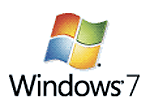 Techwise, it’s a slow day…
Techwise, it’s a slow day…
Intel, Microsoft dislike big netbooks.
Microsoft’s future visions video, remixed.
 Techwise, it’s a slow day…
Techwise, it’s a slow day…
Intel, Microsoft dislike big netbooks.
Microsoft’s future visions video, remixed.
 When Microsoft unveiled its Surface tabletop computer two years ago, the company vowed to “break down traditional barriers between people and technology.” The revolution has not happened–yet. Microsoft is expanding Surface into new markets, but adoption has thus far been confined to customers in specific markets.
When Microsoft unveiled its Surface tabletop computer two years ago, the company vowed to “break down traditional barriers between people and technology.” The revolution has not happened–yet. Microsoft is expanding Surface into new markets, but adoption has thus far been confined to customers in specific markets.
Last summer, the company embarked on pilot programs with AT&T and Sheraton Hotels that set specific goals. AT&T wanted to make its retail experience more enjoyable and engaging (selling more products in the process). Sheraton, meanwhile, was attempting to re-brand itself, and wanted to be associated with an innovative product, said Matthew Champagne, director of product management for the Surface team at Microsoft.
The AT&T pilot program ended one month ago, and its Surface units now sit in AT&T’s labs, he said, adding that Sheraton still has Surface deployed at its hotels. Beyond those tests, Microsoft has been targeting automotive dealerships, financial services, health care and hospitality services, and retailers, as well as the public sector.
Today, Surface is available in both the United States and Canada, in addition to 12 new markets in Europe, the Middle East and Africa, Champagne said. However, the question remains: where can you find one in the wild?
Customers remain few in number, but Champagne noted that Surface has had a positive affect on its customers’ bottom line. The i-Bar in Harrah’s Rio Las Vegas casino experienced an 19% increase in sales after it deployed Surface, and Barclay’s Bank at Piccadilly Circus in the UK experienced a 50% increase in sales for one product through Surface, he said.
Other deployments can be found at Bank of America in Charlotte, NC (another pilot), and Cook Children’s Health System in Fort Worth, TX. Cook’s is using Surface to rehabilitate patients through interactions with objects and the PC’s ability to recognize them, he said.
First responders used Surface to coordinate their efforts at the 2009 Super Bowl in Tampa, FL. In that instance, Surface was integrated with mapping technology to provide authorities with a bird’s eye view of incidents that required their attention.
While Champagne did not say what new form factors Microsoft would introduce in the future, he did not rule it out smaller versions of Surface, saying that it would be a “natural progression” of the technology to become miniaturized.
Additionally, the company now has nearly 200 partners in the Surface ecosystem helping Microsoft to design new interaction roles for applications that leverage multi-touch, he added.
According to a recent BBC report, the next generation of the technology will not surface for another two to three years. It’s also possible that Microsoft is preparing a consumer version that would cost between $5,000-$10,000. (Current Surface setups typically cost $10,000.)
Surface could introduce a new paradigm for computing to the living room, but its cost remains prohibitive. It will be years before the typical household has computerized furniture a la Star Trek, but I believe that Microsoft has been pragmatic enough with its expectations for the technology that Surface will be around when that does happen.
 Microsoft is still wrestling with the question of how to get Windows 7 onto dirt-cheap netbooks without crushing the profit margin it makes when it sells copies of Windows to PC manufacturers. Two pieces of scuttlebutt emerged today; one sounds promising for netbook buyers, and the other is kind of discouraging.
Microsoft is still wrestling with the question of how to get Windows 7 onto dirt-cheap netbooks without crushing the profit margin it makes when it sells copies of Windows to PC manufacturers. Two pieces of scuttlebutt emerged today; one sounds promising for netbook buyers, and the other is kind of discouraging.
Promising scuttlebutt: Paul Thurrott is reporting—very briefly–that Microsoft has decided to lift the three-applications-at-a-time restriction from Windows 7 Starter Edition, the version of the OS that it expects to be popular on netbooks. While there were numerous exceptions to the limit, it’ll still be good news if it’s gone–as long as Microsoft doesn’t compensate by hobbling Starter Edition in some other way.
Discouraging scuttlebutt: A site called Tech ARM has what it says is a list of limitations that Microsoft will apply to machines that qualify to come with Windows 7 Starter Edition preinstalled. They’re tighter in some places than the similar restrictions for Windows XP, and laxer in others–but the one that sticks in my craw is the continuing requirement that netbooks ship with a maximum of 1GB of RAM. RAM’s cheap enough these days that there would surely be 2GB netbooks if Microsoft didn’t try to prevent them from shipping. And I know from my experience with my own Asus EeePC 1000HE that it’s a markedly more pleasing computer with the 2GB upgrade that I installed than it would have been with half the RAM.
There’s something basically unsettling about a software provider putting rules in place to discourage PC manufacturers from selling well-equipped PCs–especially when said software provider has a big ad campaign going that’s centered around specsmanship. I hope that the rumors are wrong–or if they’re right, that Microsoft takes yet another pass at figuring out how to put Windows on netbooks in a way that makes sense.
 I’d love a 32GB iPhone…
I’d love a 32GB iPhone…
Savvy guesswork about next iPhone.
Gmail preview for slow connections.
Is the Pre shortage intentional?
Share bundles with Google reader.
Twitter search: broken, broken, broken!
 I still think that Microsoft’s current Laptop Hunters ad campaign for Windows represents an odd combination of stating the obvious (that you can buy a Windows PC with beefy components for a lot less than a Mac) and avoiding the obvious (that operating systems have a gigantic impact on the experience you get from a computer). But if recent research from BrandIndex is to believed, the spots are doing what Microsoft hoped they’d do: convincing people (young people, especially) that Windows computers are a better value than Macs.
I still think that Microsoft’s current Laptop Hunters ad campaign for Windows represents an odd combination of stating the obvious (that you can buy a Windows PC with beefy components for a lot less than a Mac) and avoiding the obvious (that operating systems have a gigantic impact on the experience you get from a computer). But if recent research from BrandIndex is to believed, the spots are doing what Microsoft hoped they’d do: convincing people (young people, especially) that Windows computers are a better value than Macs.
Laptop Hunters doesn’t seem to be an ad campaign designed to run for the next decade, or even the next year–the individual commercials are nearly identical except for the shoppers involved, which is why I stopped writing about them after the third entry. (I just ran out out of things to say.) For the record, the most recent two (starring a mom-and-daughter team and an artist) are not only repetitive, but increasingly weird, with an emphasis on the giddy shoppers exulting in the fact that Microsoft has bought them laptops. (Should we make anything of the fact that only one of the five ads so far involves an adult male? I dunno.)
Considering that the current version of Windows is Windows Vista, Microsoft has every incentive to downplay the OS. I assume that when Windows 7 comes out, it’ll return to emphasizing the operating system as a selling point, even if it also continues to play up the value angle and snark at Macs. It’ll be interesting to see if the shift in public opinion apparently reflected in the BrandIndex study continues on even if the ads no longer center on spec comparisons and fistfuls of cash.
 How’s your Monday so far?
How’s your Monday so far?
Napster launches a $5 service.
What’s with the oldest Twitterer?
Iomega updates external hard drives.
Microsoft patents the magic wand.
Windows 7’s virtual Wi-Fi adapters.
There’s a new Apple “Get a Mac” ad out–and this one is the first one that would seem to respond directly to Microsoft’s “Laptop Hunters” ads and their snarky put-downs of Macs, since it involves a woman shopping for a computer and addresses the fact that there are gazillions of PCs out there:
The ultimate gist of the commercial–Windows PCs involve hassles that Macs don’t–is the same as that of many previous “Get a Mac” ads. But it’s interesting to see Apple acknowledge the fact that Macs don’t offer the variety that PCs do, and to say that choice is less exciting if all the computers you can choose from are flawed.
I’m burned out on the Windows-Mac commercial wars (I didn’t even bother to mention Sheila, the star of Microsoft’s most recent ad). But choosing a computer is as much or more about the experience you hope to get from the machine on a day-to-day basis as it is about raw specs. And I continue to be surprised that the Microsoft ads don’t address living with an operating system at all, and to think that it makes sense that that the Apple ones do.
Anyhow, I don’t know if anyone involved with Apple’s advertising thinks that the Laptop Hunters spots are having an impact and needed a response, or whether the company just thought it would be fun to parody the Microsoft commercials. Either way, Microsoft’s surprising decision to embrace Apple’s “I’m a PC” and to compare PCs and Macs in its ads is having an impact. Even if its ads’ comparisons are pretty specious.
 Lotsa cool-techology news today…
Lotsa cool-techology news today…
Next generation Windows-on-Mac.
Samsung’s cool E-Ink phone keyboard.
The trouble with 200-Mbps Internet.
The standard “Express” installation of the Windows 7 RC does something I thought software had stopped doing years ago:
If you upgrade from a previous version of Windows, and choose the “Express” option when installing, your default browser will be changed to Internet Explorer. Needless to say, this behavior has immediately sparked complaints from Mozilla and Opera, and rightfully so, because it’s shady at the very least.
This sounds so cheesy that I wonder if it’s a unwitting gaffe by Microsoft rather than an intentional ploy. Can we all agree that this needs to be changed for the final version of the OS?
 I’m moving to southeast England!
I’m moving to southeast England!
Really fast Internet in England.
Your own personal Wi-Fi hotspot.
Anonymous? You can’t watch Hulu.
Indian hacker’s Facebook-compromising tool.
WiGig: Short-range gigabit wireless.
